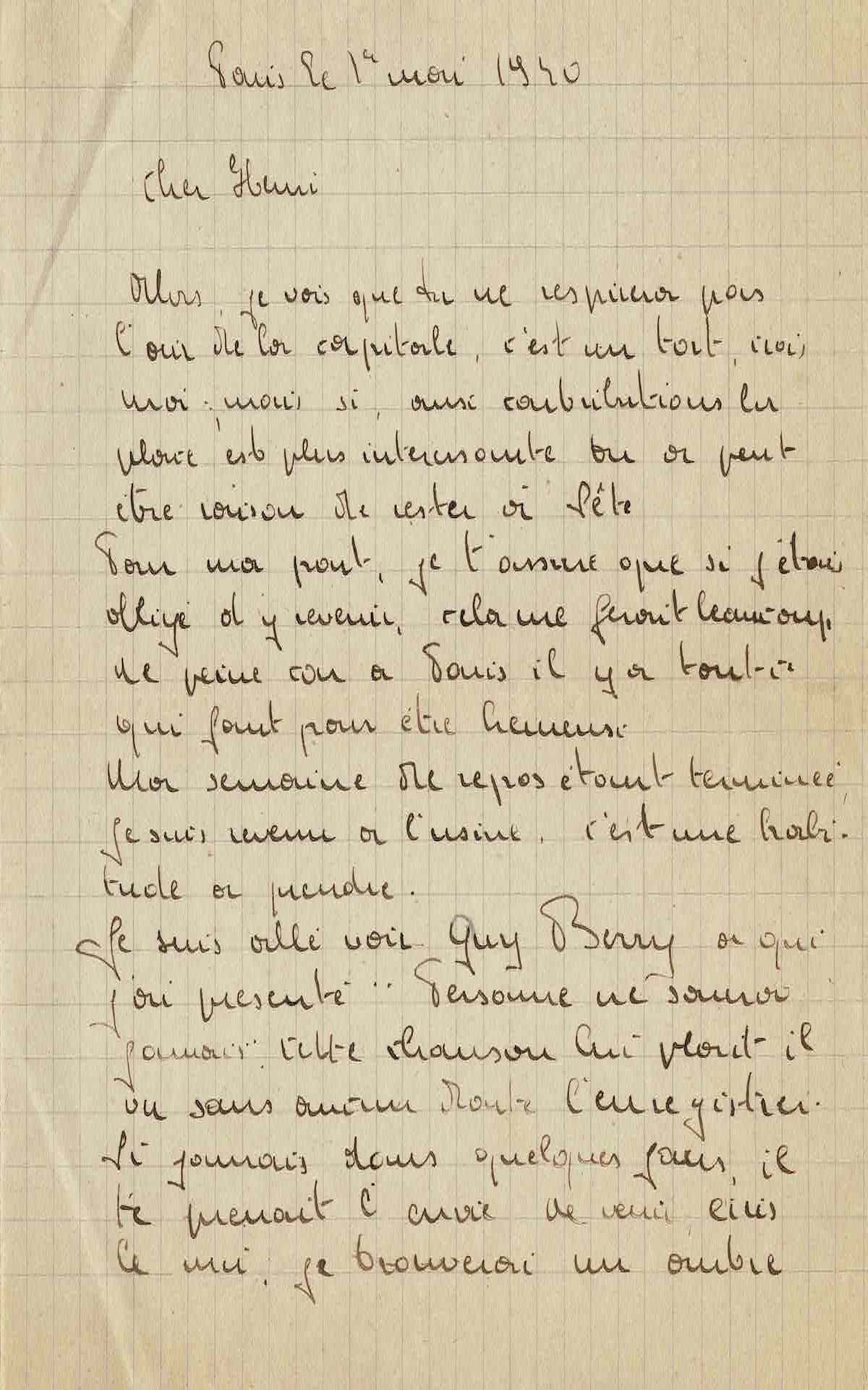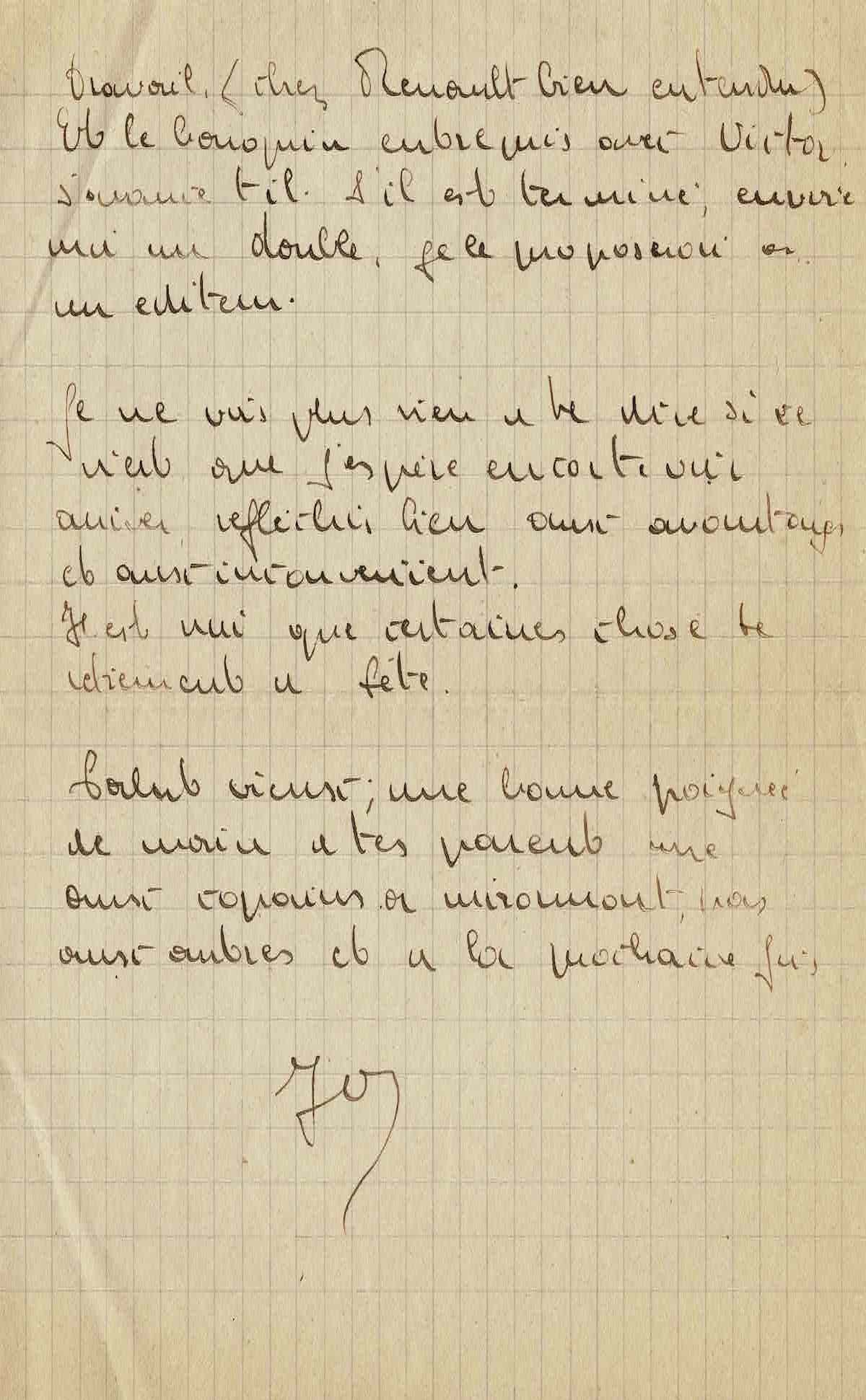Georges BRASSENS (1921.1981)
Autograph letter signed to his friend Henri Delpont.
Two pages in-8° on graph paper. Paris. 1 , 1940.
“I went to see Guy Berry to whom I presented “No one will ever know”. He likes this song, he will definitely record it. »
The young Brassens, 18, has just arrived in Paris and is already dreaming of music and song.
“Dear Henri, So I see that you will not breathe the air of the capital, it is wrong, believe me, but if your place in contributions is more interesting, you are perhaps right to stay in Sète. For my part, I assure you that if I were forced to return there, it would cause me a lot of pain because in Paris there is everything you need to be happy. My week off being over, I returned to the factory. That's a habit to take.
I went to see Guy Berry to whom I presented “Nobody will ever know”. He likes this song, he will definitely record it. If in a few days you feel like coming, write to me, I'll find another job. (at Renault of course). And the book started with Victor is progressing. If it's finished, send me a copy, I'll suggest it to a publisher. I don't see anything more to say to you except that I still hope to see you arrive. Think carefully about the pros and cons. It is true that certain things keep you in Sète. Hello old man, a good handshake to your parents, one to your friends, to Miramont, not to the others and until next time. Joe. »
———————————————————————————————————————————————————————————————————————————————————————————–
Georges Brassens left Sète for Paris in February 1940. He was accommodated, as agreed with his parents, with his maternal aunt Antoinette Dagrosa in the 14th arrondissement. Wishing to be independent, he found work at the Renault factories in Billancourt as a specialized laborer. Employment and life in Paris were short-lived: on June 3, Paris was bombed by the Germans and the Renault factory was hit. On the 14th, the Germans entered Paris; Brassens returns to Sète.
Last summer, realizing that his future did not lie in his native land, Brassens returned to his aunt in Paris occupied by the Wehrmacht. There is no longer any question of returning to Renault: Brassens spends his days at the library, reads poets, learns versification and begins writing his first collections of poetry: Les Couleurs Vagues , Des Coups d'Epee dans l'eau and À la vvole (1942).
Henri Delpont and Brassens attended the same school in Sète (along with Roger Thérond, future director of Paris-Match, Mario Poletti and Louis Bestiou). Brassens considered Delpont his “alter ego”, his best friend.
He mentions, in this letter, one of his first songs, “Personne ne saura” (deposited with SACEM in 1942) . This love song, written in 1939, was therefore proposed by Brassens to the popular singer and actor at the time, Guy Berry.




